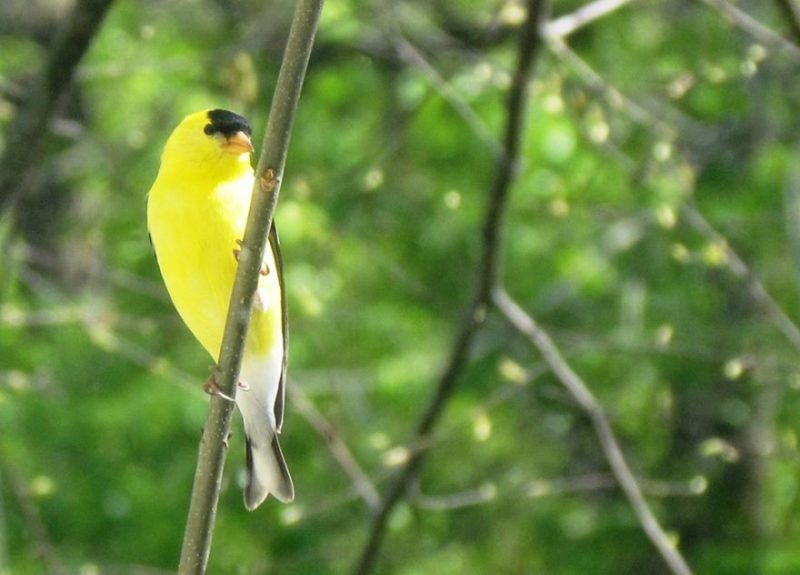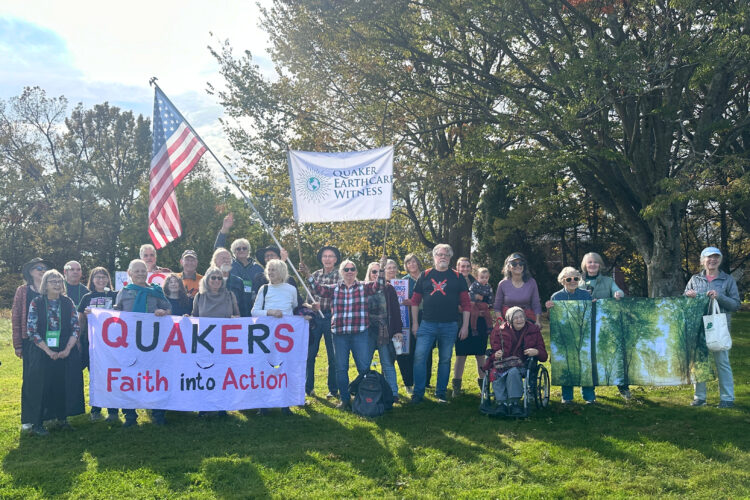Reverence and Right Action

I was not raised Quaker, but instead came to Quakerism after having developed an environmental conscience that has very much shaped my life and how I spend my time. You might take that as one indicator of the compatibility of deep earth ethics with Quaker practice.
Let’s start with “that of God in every one,” and let me translate that a little differently: “that of God in every being.” In approaching all beings as if they embodied God, we treat each plant and animal we see as unique individuals with unique personalities and concerns, much as we do humans. A practice I’ve found helpful is to literally envision souls in every being I meet when out walking—be that people, pigeons, cats, trees, roses, or other.
As a society, we haven’t embodied that level of respect well. Humans have often found an incentive to treat animals as not fully conscious creatures, and not an embodiment of the Creator. The “othering” is helpful to justify industrial agriculture practices or using animals for medical/scientific testing. However, as virtually any cat or dog owner knows, animals indeed have intelligence, emotions, and personality. And if plants might not exhibit the same level of consciousness, it can still be personally nourishing to treat plants with respect when weeding gardens or watering indoor plants, feeling the connection with other life.
The indigenous sense of “future generations” and acting in accord with future needs is very powerful. Those are future generations of all beings.
In terms of right action, I’m actually more interested in looking at the function of living systems/ecosystems, and less drawn to any one individual. One can see individuals of all species as the net result of their parents, parents’ parents, relationships, influences, and experiences throughout their lifetime; and the food, clothing, shelter, and the other natural processes that have sustained that individual. They’re all part of the living infrastructure of the planet. And in looking at what living systems need, in order to ensure that the cycles of life continue, knowledgeable people have come up with four key principles for human (and other) communities:
- Power off of 100 percent renewable resources (if energy and materials are not used renewably, they’re being used up. You have to use resources at the rate at which they’re replenished.).
- Use 100 percent healthy/non-toxic resources (no poisoning).
- Maintain the regenerative capacity of natural systems (enhance a diversity of natural habitats for biodiversity, and all the water, air, and land purification that those habitats provide).
- Use resources equitably (when people in particular don’t have what they need, we get bad outcomes —crime, ill-health, armed conflict, etc.)
I have devoted my life to advancing these principles. Those who look closely should see much resonance with Quaker values. And you can translate these high-level principles to a wide range of on-the-ground actions: climate action, toxics reform, habitat restoration, indigenous rights, racial equity, economic justice, wise population advocacy, and more.
If you believe that life on the planet must continue, this is what constitutes right action.

